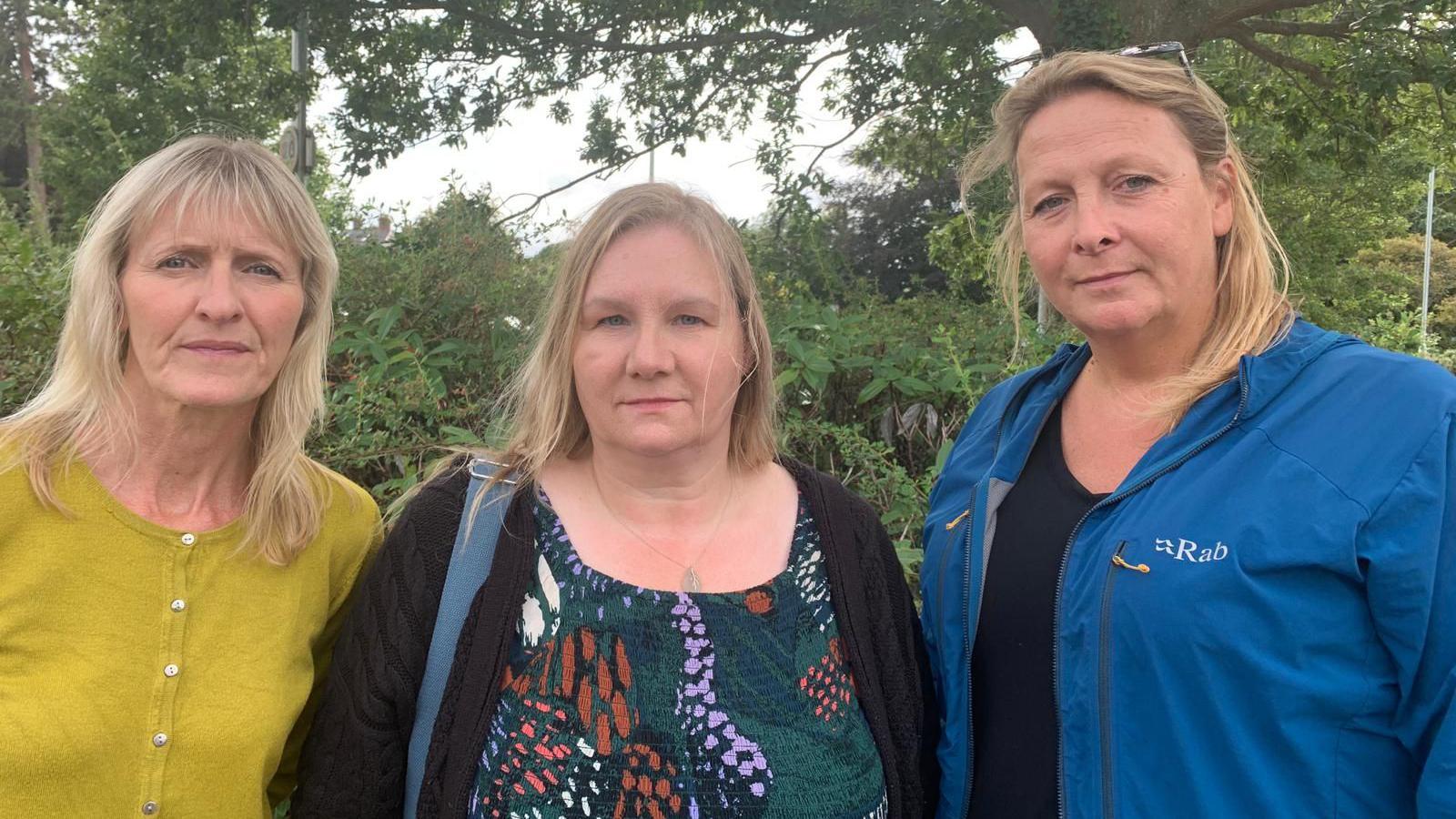Record numbers of children being home schooled
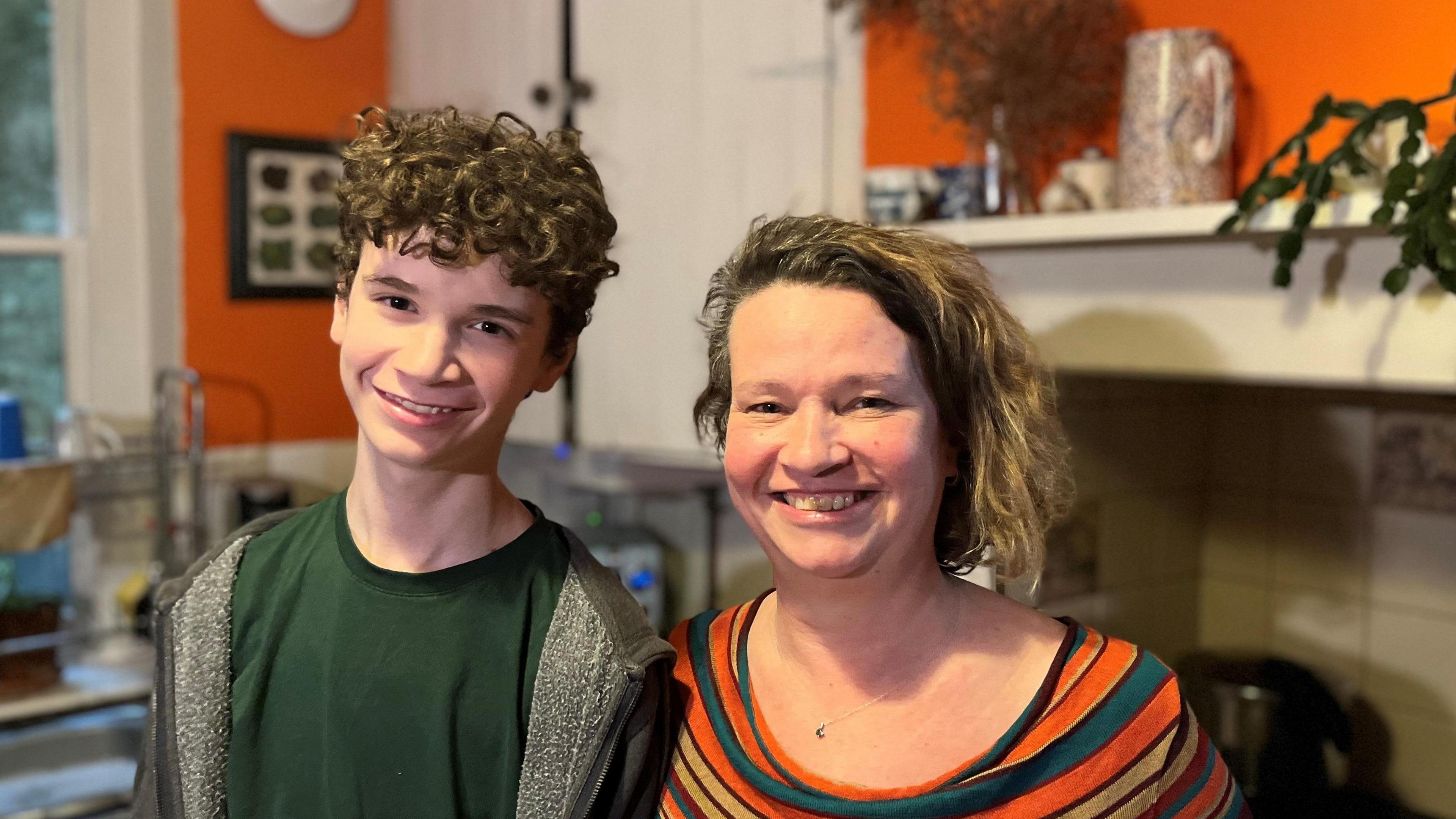
Oliver began home learning in September with his mother Sharon
At a glance
The number of children being home educated is at a record high in Devon
Devon County Council said such education used to be a lifestyle choice but was increasingly due to mental health issues
One mother said Covid-19 lockdowns had been a factor in her son's attitude towards school
- Published
The number of children being home educated has increased dramatically in the last five years.
In the area covered by Devon County Council, a record number of 2,951 children were being home educated in the 2022/23 academic year - an extra 449 on the previous academic year.
One parent told the BBC the Covid-19 pandemic, mental health and school behavioural policies all played a part in choosing home education.
Devon County Council said historically parents had cited lifestyle choices as the main reason for choosing home education but now the main reason given was mental health issues.
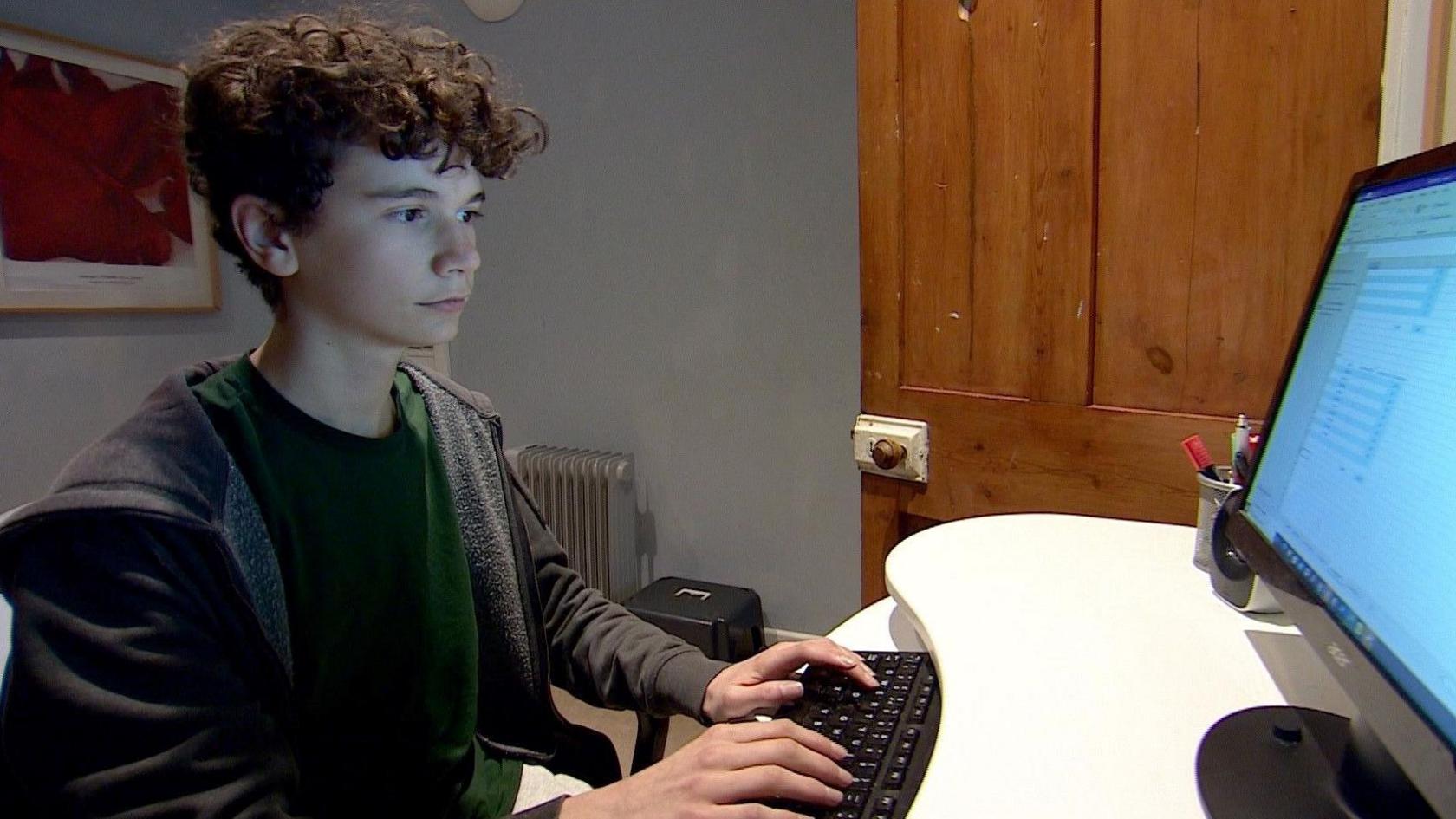
Oliver is studying range of subjects online
Oliver, 14, decided to take up home education in September.
He said: "It's just a lot more personalised.
"In school, it's all about everyone needing to fit the same shoe. In home schooling, you get to make more decisions about what happens to you.
"It's more enjoyable than regular school, at least for me.
"In regular school, you only get a certain amount of GCSE options, but there's a lot more that you can do - obviously they might not have the teachers or the facilities for it.
"But when you're home schooling you get to pick out of all of them."
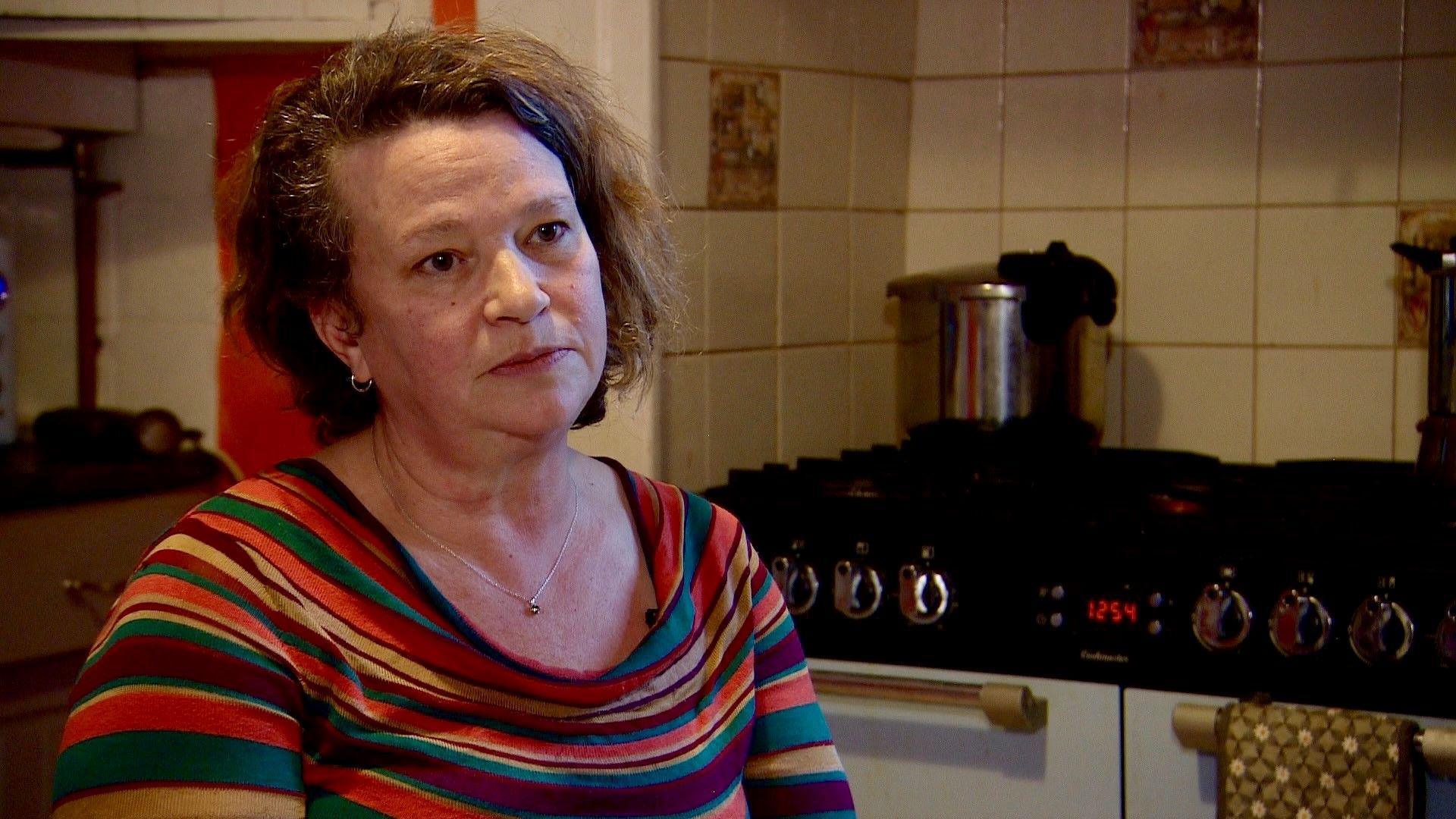
Sharon said Covid lockdowns had increased anxiety levels for her son
Oliver's mother Sharon said there were a range of reasons behind the choice to home educate.
She said: "Ever since he's been at secondary school, he's had a few problems with anxiety, particularly around school.
"He is quite academic; he just didn't really get on well with the school environment."
Sharon said home schooling provided an opportunity for "child-led education based on their interests".
Oliver is planning on taking GCSEs and may go to a further education college at 16.
Sharon said Oliver was autistic and that had made it difficult to spend so much time with so many people when moving to a large secondary school from a 150-pupil junior school.
She said: "He moved to secondary school in 2020 when we had all the lockdowns and Covid-related regulations - obviously that was a scary time for everyone and a lot of kids have had trouble since then.
"He got a lot more anxious about getting the bus to school, being in school when they brought in all the social distancing rules and they weren't very well enforced, so it sort of grew from there and I don't think he ever felt really comfortable in school."
Sharon said Oliver's school "just wasn't able to or willing to adapt to his needs".
She said: "The overall environment in school just didn't suit him."
She added there were behavioural policies at the school that "didn't take children's individual needs into account".
Sharon said her son's mental health had improved considerably since being home educated.
In the area covered by Devon County Council, the number of children being home educated at any point in the year has increased from 1,940 in 2018/19 to 2,951 in 2022/23
In the Plymouth area, separate from Devon county, that number has increased from 478 in 2018/19 to 734 in 2022/23
In the Torbay area, also separate from Devon county, the number of children being home educated has increased from 189 in October 2019 to 400 in October 2023
In Cornwall, the number of children being home educated has increased from 1,058 in 2019 to 1,737 in 2023
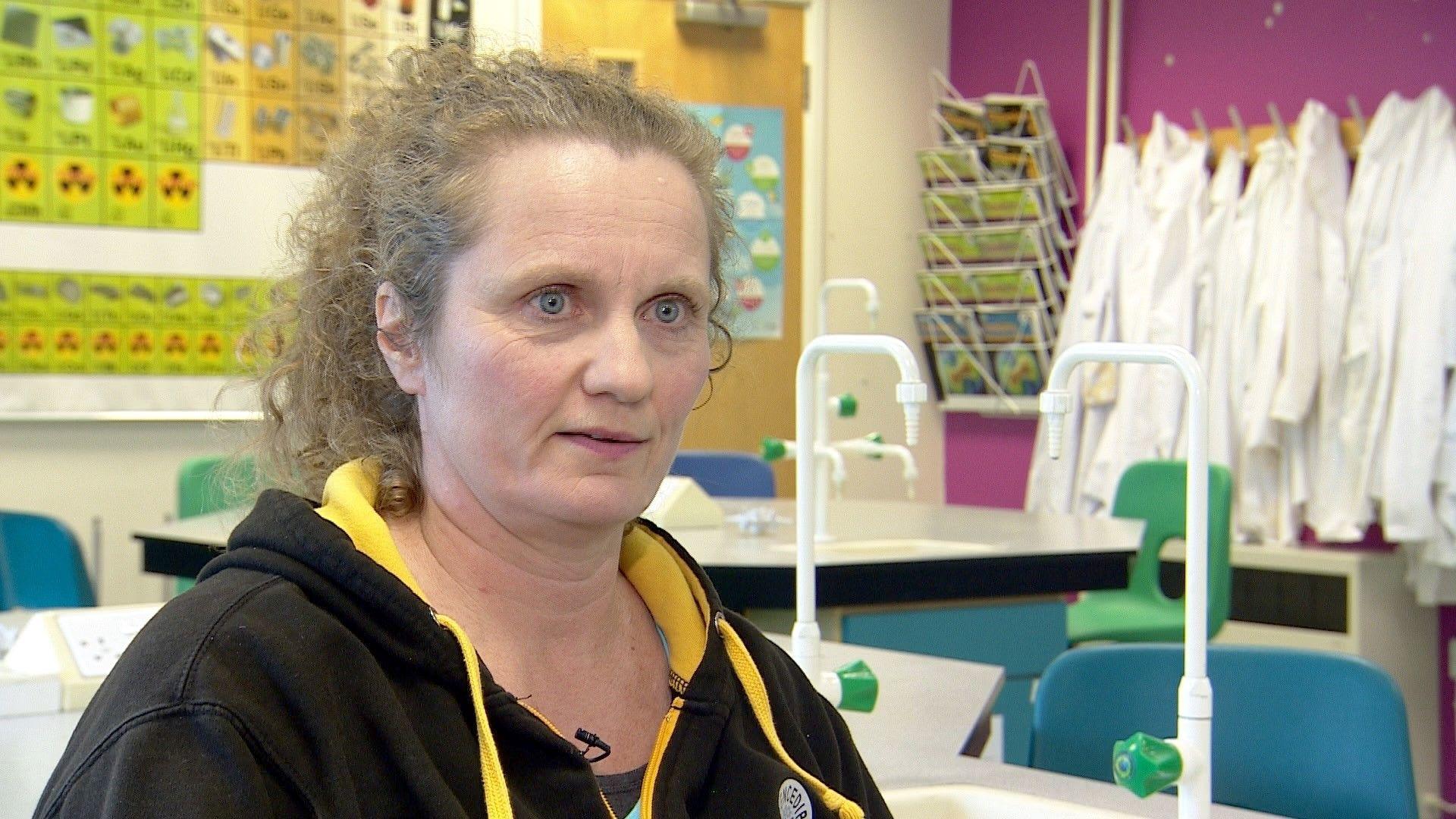
Ruth MacLaren runs science classes for home-educated children
Ruth MacLaren, from Devon Science, offers a six-week course of practical science lessons for home-educated children.
She said: "The home education community has been using Devon Science as a way to get hands-on science for their kids for probably about 10 years.
"This has been fabulous - we can get kids in doing proper, real science using the real kit.
"They get a non-teaching environment, they are learning by doing.
"The pressures they might have had if they'd been at school they don't have here, so I don't expect them to answer any questions or participate with me at all.
"As long as they're doing the practical work, I'm just happy for them to be here and getting hands-on with it."
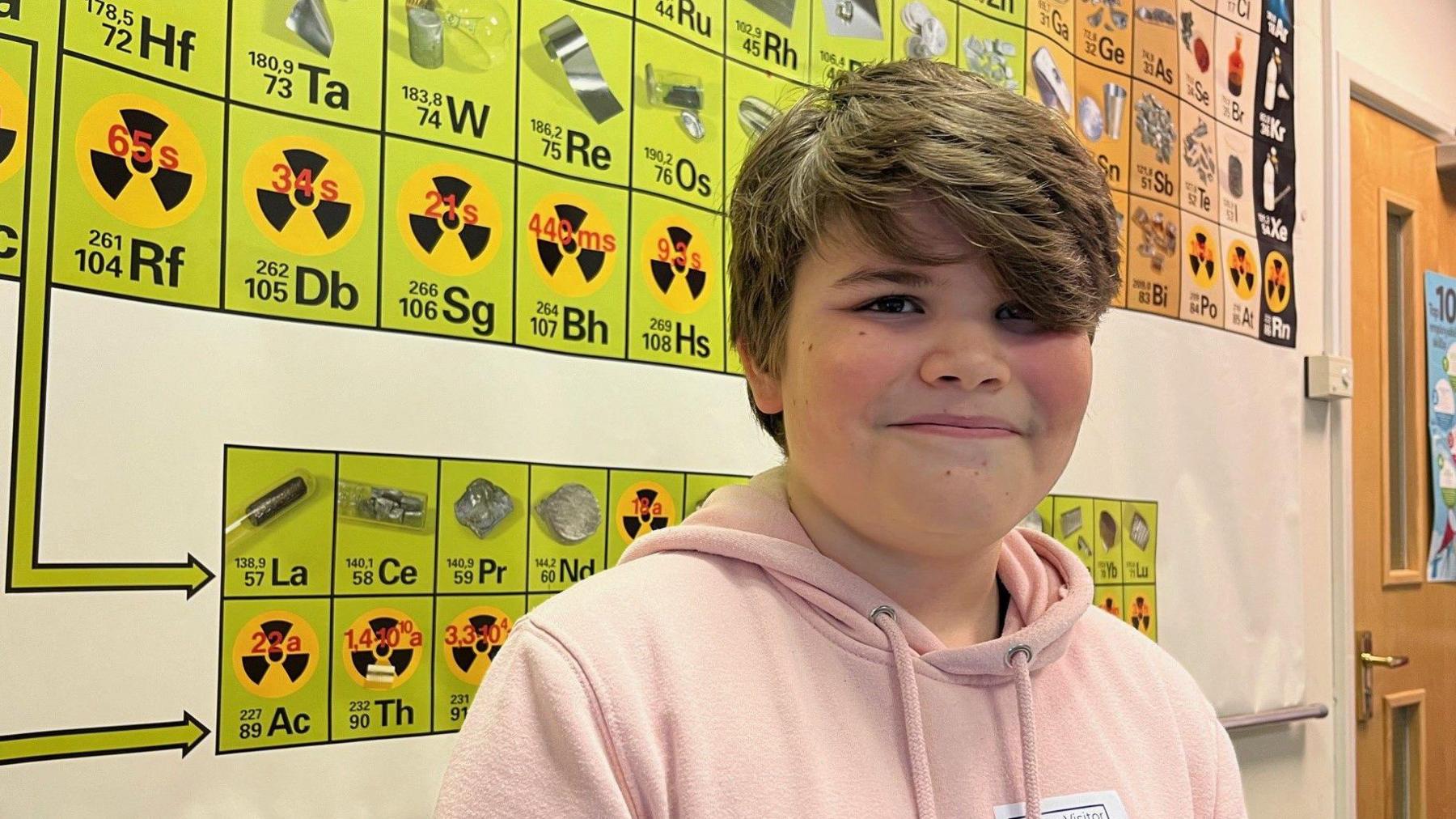
Elliot goes to a practical science class for home-educated children
One of the children who attends the Devon Science course, Elliot, 12.
He said he enjoyed learning chemistry and biology.
He said at school he was "always a little bit behind" and felt more "safe and secure" being home educated.
After nearly five years of home education, he said: "Having a bit more freedom to do more what you want to do, and having a smaller but nicer friend group, is probably the best part for me."

Jason Jones, deputy principal at the higher education Petroc College in Devon
Staff at Petroc, the higher education college in north Devon, said they were seeing increasing numbers of home-educated children coming to them for post-16 education.
Jason Jones, deputy principal at the college, said: "We know there are lots of reasons why parents choose to educate their young people at home.
"The most common ones that we've come across are social, emotional and mental health issues, or around the fact that perhaps parents are less satisfied with the educational environment in the school they've been to, or maybe it's around special educational needs."
'School return team'
A Devon County Council spokesperson said: “Following the disruption to their education brought about by the pandemic, many young people have struggled to re-adjust to being in a school environment and, with a greater awareness of home education as an option, are therefore going down this route.
“We have a dedicated Elective Home Education team, and we are working very hard to ensure those parents that want or need their children to return to school can do easily and quickly.”
Follow BBC Devon on X (formerly Twitter), external, Facebook, external and Instagram, external. Send your story ideas to spotlight@bbc.co.uk, external.
Related topics
Related internet links
- Published12 January 2021
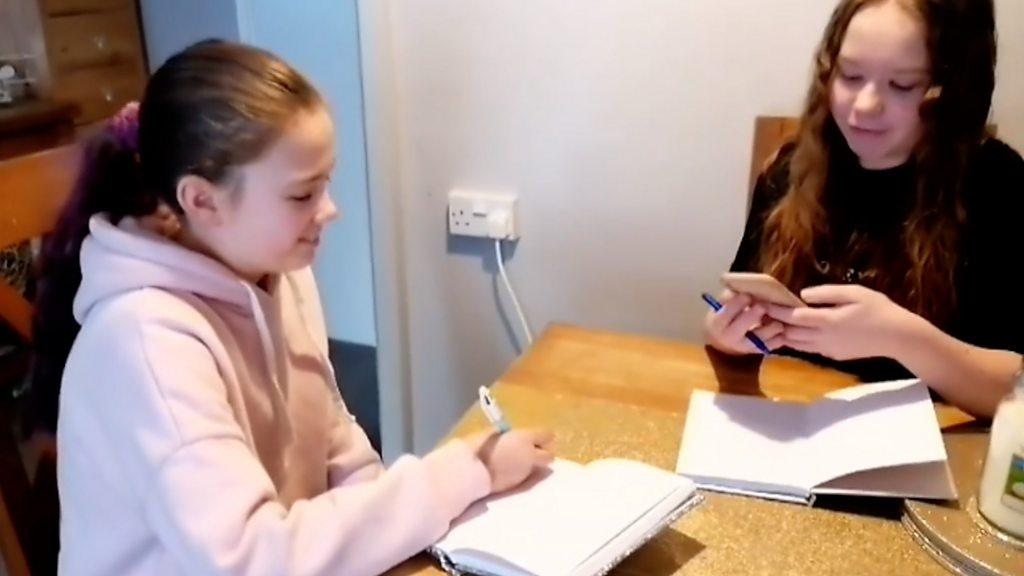
- Published23 September 2023

- Published19 September 2023
